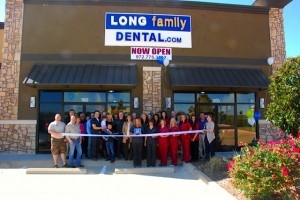 Are you disappointed in the appearance of your teeth? Is you smile not quite as nice as you’d like it to be? Perhaps you should look into restorative dentistry.
Are you disappointed in the appearance of your teeth? Is you smile not quite as nice as you’d like it to be? Perhaps you should look into restorative dentistry.
Restorative dentistry is focused on restoring the health and appearance of your teeth. If your teeth are damaged or decayed, your dentist will fix the damage, thus improving the health and appearance of your teeth. Restorative dentistry usually involves a combination of services, customized to the patient’s unique needs. Some of the common services are discussed below.
Bridges
Bridges are used to replace missing teeth. Since teeth rely on each other for support, a missing tooth could cause the surrounding teeth to shift directions. A bridge allows your dentist to replace your missing tooth while helping the rest of your teeth remain in their ideal position.
Crowns
Crowns are used to help repair and restore teeth that are cracked or decayed. If the damage is too large for a filling, then a crown is used. This allows your dentist to save your natural tooth, which is better for the overall health of your mouth. Usually crowns are made from porcelain, ceramic, or metal. If you care for them like you would your natural teeth, they will last for years.
Dentures
If you’re missing more than one tooth, dentures are your solution. Depending on the location of the missing teeth and the health of your remaining teeth and jaw bone, full or partial dentures may be used. Dentures are custom-molded to fit your mouth, and may sometimes be anchored by remaining teeth. Since they’re custom-made, you’ll have a great fit and be able to smile and eat with confidence. It is also important to treat them as you would natural teeth with regular brushing and flossing.
There are lots of restorative dentistry options available to help you smile proudly once again. Your dentist will analyze your mouth and come up with a treatment plan, using some of the restorative dentistry techniques discussed above. See how easy it is to have healthy teeth once again!



